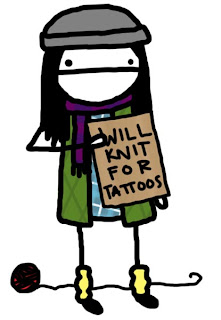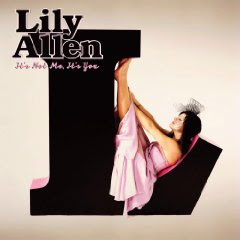
Wednesday, December 2, 2009
Mid-Term Report

Green Day was originally part of the punk rock scene at 924 Gilman Street in Berkeley, California. Its early releases for independent record label Lookout! Records earned them a grassroots fanbase, some of whom felt alienated when the band signed to a major label.[2] Nevertheless, its major label debut Dookie (1994) became a breakout success and eventually sold over 10 million copies in the U.S. and 15 million worldwide.[3] As a result, Green Day was widely credited, alongside fellow California punk bands The Offspring and Rancid, with reviving mainstream interest in and popularizing punk rock in the United States.[4][5] Green Day's three follow-up albums, Insomniac, Nimrod and Warning did not achieve the massive success of Dookie, but they were still successful, reaching double platinum, double platinum, and gold status respectivel
 y.[6] Green Day's 2004 rock opera American Idiot reignited the band's popularity with a younger generation, selling five million copies in the U.S.[7] The band's eighth studio album, 21st Century Breakdown, was released on May 15, 2009.
y.[6] Green Day's 2004 rock opera American Idiot reignited the band's popularity with a younger generation, selling five million copies in the U.S.[7] The band's eighth studio album, 21st Century Breakdown, was released on May 15, 2009.Green Day has sold over 22 million records in the United States.[8] They have won three Grammy Awards; Best Alternative Album for Dookie, Best Rock Album for American Idiot, and Record of the Year for "Boulevard of Broken Dreams".
Contents[hide]
Contents
- 1 Band history
- 2 Musical style and influences
- 3 Related projects
- 4 Band members
- 5 Discography
- 6 Awards
- 7 References
- 8 Notes
- 9 External links
References
- Cohen, Johnathan (2004). "Green Day's 'Idiot' Fueling Banner Year" (http). Billboard.com. http://www.billboard.com/bb/daily/article_display.jsp?vnu_content_id=1000732979. Retrieved July 27, 2005.
- Cohen, Johnathan (2005). "Green Day not ready to rest 'Idiot'" (http). Billboard.com. http://www.billboard.com/bb/search/article_display.jsp?vnu_content_id=1000991882. Retrieved July 27, 2005.
- Spitz, Marc. Nobody Likes You: Inside the Turbulent Life, Times, and Music of Green Day. New York: Hyperion, 2006. ISBN 1-4013-0274-2
- The Green Day Story (Broadcast on Radio 1 Mon June 20, 2005) (Alternate Link)
Exercise 6

Sub-Topic :
What is the Internet?
What is the Library?
What are the relationship between Internet and Library?
Over the past century and a half, important technological developments have created a global environment that is drawing the people of the world closer and closer together. During the industrial revolution, we learned to put motors to work to magnify human and animal muscle power. In the new Information Age, we are learning to magnify brainpower by putting the power of computation wherever we need it, and to provide information services on a global basis. Computer resources are infinitely flexible tools; networked together, they allow us to generate, exchange, share and manipulate information in an uncountable number of ways.
Body
What is the Internet?

The origins of the Internet reach back to the 1960s when the
How about the library, What is the Library?

A library is a collection of sources, resources, and services, and the structure in which it is housed; it is organized for use and maintained by a public body, an institution, or a private individual. In the more traditional sense, a library is a collection of books. It can mean the collection, the building or room that houses such a collection, or both. The term "library" has itself acquired a secondary meaning: "a collection of useful material for common use," and in this sense is used in fields such as computer science, mathematics, statistics, electronics and biology.
However, with the sets and collection of media and of media other than books for storing information, many libraries are now also repositories and access points for maps, prints, or other documents and various storage media such as microform (microfilm/microfiche), audio tapes, CDs, cassettes, videotapes, and DVDs. Libraries may also provide public facilities to access subscription databases and the Internet.
What are the relationship between Internet and Library?
As above, now a days, Internet has been related to everything, including Library. In fact, There is one thing that they share the same, is Information.
There is a proverb about " two sides of a coin". It means, can be both positive and negative ways. In the positive way that the internet did a lot for the library, example are
1. It is support the library database, means you can search the book that you need from the internet.
2. It can be the source of knowledge for the Liberians and searchers to search for topics that are not in the library.
In the other hand, on the negative ways.
1. With the advanced of the internet can lead people to stay in touch with information rather than use the library, so people might go to the library less than before.
Conclusion:
To Conclude the conclusion, Library can be effected by the internet and the advancing of technology but the success of the Internet in society as a whole will depend less on technology than on the larger economic and social concerns that are at the heart of every major advance. The Internet is no exception, except that its potential and reach are perhaps as broad as any that have come before.
References:
http://www.cnri.reston.va.us/what_is_internet.html
http://en.wikipedia.org/wiki/Library
http://en.wikipedia.org/wiki/Internet
http://www.bloggang.com/viewdiary.php?id=exdecor&group=20
Week 5
2. Go to the library website search for the bibliographic of database books in the library catalog(OPAC = online publice access catatog).

3. Go to the library e-book database, search for the articles about database from Proquest, ABI/INFORM, Dissertation & theses
* Abstract (Summary)S&P Consultants Tracey Leathers-Dray, 1 508-586-7850 tdray@spconinc.com Logo: http://www.spconinc.com A new business partnership of S&P Consultants, Inc. and Vedant Incorporated will now offer the highest levels of quality- and patient-safety assurance to both standard and customized applications built on the Cerner Millennium(R) platform
Week4
*I can find information about Nobel Prize from http://www.nobelprize.org/

* All Nobel Laureates 2009
Nobel Lectures in Physiology or Medicine
Monday, 7 December at 1:00 p.m.–3.30 p.m. (CET)
Karolinska Institutet, Stockholm, Sweden
Telomeres and Telomerase: The Means to the End by Elizabeth H. Blackburn
Telomerase and the Consequences of Telomere Dysfunction by Carol W. Greider
DNA Ends: Just the Beginning by Jack W. Szostak
Go to Encyclopedia Online at http://library.spu.ac.th/ Search for the history of automobiles or computer. Summarize the information you get.
 food adulteration
food adulterationfood adulteration act of intentionally debasing the quality of food offered for sale either by the admixture or substitution of inferior substances or by the removal of some valuable ingredient. The Greek and Roman classics contain allusions to wine makers and dealers who colored and flavored their wine. In England as early as the 13th cent., bakers cheapened their wares or scanted the weight, and lawmakers for the first time made an effort to prevent fraudulent dealings on the part of butchers and brewers. In Great Britain in the 18th and early 19th cent., coffee, tea, and cocoa were placed under protection laws by Parliament, passed not so much in the interest of the consumer as to keep up internal revenues. About the middle of the 19th cent. chemical and microscopal knowledge had reached the stage that food substances could be analyzed, and the subject of food .
Reference books are used to find factual information on a subject, and are not usually read all the way through or chapter by chapter. In a K-12 library, reference books are usually located in a special reference collection area, and cannot be checked out. Reference books include dictionaries, encyclopedias, thesauri, almanacs, atlases, and directories.
When do you need to search information from the reference collection?
*When I want to know about meaning, spelling, pronounciation of words.
What type of reference collection that you like to use most? And why?
The type of reference that I like to use most is Dictionary because dictionary is containing information about words, meanings, derivations, spelling, pronounciation, syllabication and usage. And all of those are helpfull to learn English.
Ex. Oxford Dictionary book
Handbook
*Writing College Handbook
Topic:Choose a Topic You Really Want to Think About
If you're free to choose your own topic, pick on in which you are genuinely interested and about which you want to know more. You have to know something about any topic you write on, but writing is not just an act of transmitting information. It should also be an act of learning.
If you're free to choose any topic at all, you might well try to find something from your own experience, something that will let you explore yourself, perhaps something that you have never fully described or analyzed to anyone, even to yourself. The richest moment of our experience are often born out of conflict. Suppose you recall a time when you were made or asked to do something you did not want to do. When and where did it happen? How did you feel about having to act against your will? How did you feel about the person who asked you to do so? What did you learn from the episode?
Raising questions will help you to think more about any subject. If you know something about ceramics, say, or kayaking, you might ask a specific question about that. What make kayaking so different form rowing a boat or paddling a canoe? Does centering a clay pot on a wheel have anything to do with finding the center of your own existence? It's alwanys an advantage to write about what you know. But if you start writing on the assumption that you know it all, you drain the life out of the writing process.
Monday, September 14, 2009
Exereise 3
- Give exampies
Journal
Journal writing is a learning tool based on the ideas that students write to learn. Students use the journals to write about topics of personal interest, to note their observations, to imagine, to wonder and to connect new information with things they already know.
Magazine
Magazines are publications, generally published on a regular schedule, containing a variety of articles, generally financed by advertising, by a purchase price, by pre-paid magazine subscriptions, or all three. Magazines can be distributed through the mail; through sales by newsstands, bookstores or other vendors; or through free distribution at selected pick up locations.

DC
The DC attempts to organize all knowledge into ten main classes. The ten main classes are each further subdivided into ten divisions, and each division into ten sections, giving ten main classes, 100 divisions and 1000 sections.
LC
Listed below are the letters and titles of the main classes of the Library of Congress Classification.
Examples
G -- GEOGRAPHY. ANTHROPOLOGY. RECREATION - WP version
H -- SOCIAL SCIENCES - WP version
J -- POLITICAL SCIENCE - WP version
K -- LAW - WP version
L -- EDUCATION - WP version
M -- MUSIC AND BOOKS ON MUSIC - WP version
3. Access the Library website : What is the call number?
A call number is a group of numbers and/or letters put together to tell you where in the library to find your book.
4. What are sources of knowledge? Identify as mush as you know.
Inspiration, revelation, insight, intuition, ecstasy, divine sight and Paramananda state are the seven planes of knowledge. There are four sources of knowledge, viz., instinct, reason, intuition and super-intuition or Brahma-Jnana.
5. What do you read this week?
This weenk . I read ice Magazine , cheeze Magazine , TV. pool Magazine and I read newspaper



